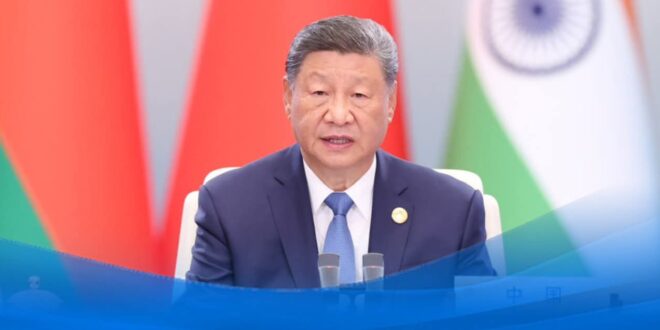Wagdy Abd aziz
In a poignant tribute to the nation’s enduring spirit of resistance, Chinese President Xi Jinping, alongside senior leaders from the Communist Party and the state, is set to present flower baskets to fallen national heroes on Tuesday morning at Tiananmen Square, the heart of Beijing. This solemn ceremony marks the 12th Martyrs’ Day, observed annually on September 30—just one day before National Day—to honor those who sacrificed their lives for China’s independence and unity.
Joining President Xi Jinping, who also serves as the General Secretary of the Communist Party, will be other key figures including state leaders and representatives from the People’s Liberation Army, as well as delegates from various walks of life, such as artists, intellectuals, and youth.
The event will be broadcast live via China Media Group (CGTN), allowing millions of Chinese citizens to participate virtually in this collective moment of remembrance, often described as a “national stand before history” to foster patriotic awareness.
This year’s observance carries special significance, coinciding with the 80th anniversary of the victory in the Chinese People’s War of Resistance Against Japanese Aggression (1937-1945), a pivotal chapter in the global fight against fascism during World War II.
That conflict exacted a staggering toll, with over 20 million Chinese lives lost according to official estimates, making it one of humanity’s deadliest armed struggles in terms of casualties. The triumph in 1945, formally announced on September 2 of that year, ended Japanese occupation and paved the way for the founding of the People’s Republic of China in 1949.
In recent statements, Chinese authorities have emphasized the importance of “safeguarding world peace,” drawing lessons from the war amid current geopolitical tensions in Asia and the Pacific.
The ceremony will take place in front of the Monument to the People’s Heroes, unveiled in 1958 at the center of Tiananmen Square.
Standing at 37.94 meters tall, this iconic structure bears inscriptions chronicling modern Chinese history, from the Opium Wars (1839-1842) to the establishment of the republic, symbolizing the nation’s struggles against colonialism and imperialism.
In previous years, participants have been encouraged to wear formal attire and offer salutes of respect, reinforcing values of national loyalty among younger generations.
The program is expected to include a brief address from President Xi, focusing on the “spirit of national resistance,” similar to last year’s 79th anniversary event where he underscored that “past sacrifices form the foundation of China’s current strength.
” This commemoration serves as a prelude to the grand National Day celebrations on October 1, which often feature a massive military parade showcasing China’s technological advancements in defense, amid ongoing tensions with Taiwan and the United States.
This honor highlights China’s role in shaping the post-World War II global order, where it became a permanent member of the UN Security Council in 1945.
It also reaffirms the policy of “peaceful development” under Xi Jinping’s leadership, aiming to position China as a superpower by 2049.
In a world rife with renewed conflicts, Martyrs’ Day stands as a reminder that “peace is built on the sacrifices of heroes,” echoing the official anthem of the event.
 موقع وجه أفريقيا موقع وجه أفريقيا هو موقع مهتم بمتابعة التطورات في القارة الأفريقية
موقع وجه أفريقيا موقع وجه أفريقيا هو موقع مهتم بمتابعة التطورات في القارة الأفريقية



